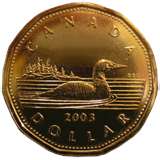
Lots of us have denounced the Loonie in recent years as it has soared high and beaten crop and meat prices down. The rising Loonie was one of the main things that caused so much pain and devastation in the prairie hog industry a couple of years ago and which led so many of Canada’s export industries to slow down and begin losing money.
Read Also

Farmer ownership cannot be seen as a guarantee for success
It’s a powerful movement when people band together to form co-ops and credit unions, but member ownership is no guarantee of success.
And it’s lowered the value of every bushel of crop sold by farmers on the prairies, since crop prices are set globally in U.S. dollar terms.
But with the world in financial turmoil yet again, it’s really time to stand back and give that old Loonie a pat on the back.
 And I don’t say this just because the Loonie fell yesterday by two cents as everyone ran towards the supposed safety of the greenback. I say this because having an independent currency is a crucial economic tool that allows this country, like the other sensible countries of the world, to adjust to economic and financial shifts without completely breaking down.
And I don’t say this just because the Loonie fell yesterday by two cents as everyone ran towards the supposed safety of the greenback. I say this because having an independent currency is a crucial economic tool that allows this country, like the other sensible countries of the world, to adjust to economic and financial shifts without completely breaking down.
Last night Britain’s Prime Minister, David Cameron, spoke to Canada’s massed federal legislators and praised Canada – and wagged his finger at Europe’s ineffective political and financial leaders for failing to deal with the Greek debt blowout. Canadian finance minister Jim Flaherty did the same thing earlier in the day. And the U.S.’s Timothy Geithner did ditto stateside. There are two sets of similarities between Canada, the U.S. and Britain that are relevant here to this discussion: 1) All three are part of the Anglosphere and the glorious British tradition; 2) all three have their own currencies and can manipulate them to get out of scrapes.

It’d be nice to think the Anglosphere is just simply more financially savvy and responsible than the hapless Eurotypes, but it’s not the case. Canada’s doing financially better than almost everyone else in the developed world, but both the U.S. and Britain are in long term financial crisis and suffering great financial and economic pain. Economically and financially, the U.S. and Britain are just as badly off as many of the Eurozone countries. They’re worse off than Germany and France. (At least for another week or so . . . )
But all three of these Anglo countries has their own currency, so we all have an ability to both automatically adjust to swings (i.e. our hog industry shrinks) and we can play games with them if things go really south (i.e. run the printing presses and pay off our debts with wheelbarrows of worthless Loonies). The latter option is not nice, and you can only afford to do it about once a half-century without wrecking your credit rating, but it’s better than ending up as smoking rubble.
Countries in the Eurozone can’t do this, because none of them controls their own currency. That’s run by some hamstrung bureaucrats who are beholden to a committee of politicians, and that means nothing decisive or even sensible can ever get done. Hence the absurd dancing of politicians around the obvious reality that there is no way Greece can pay off its debts and that banks in France and Germany are going to need to write most of those debts off their books. Europols are still pretending they can talk their way out of this mess.
And the only reasonable way for Greece to ever recover and get its act together is to abandon the Euro, and really, that’s what everyone else in Europe probably needs to do too. The countries are just too different to operate under one currency run by the Germans and French and which is totally insensitive to their national economic needs.
There are lots of times swings in currencies seem like a curse, as happened in Canada with hogs and crop prices from the early 2000s to 2008, and then again in the last two years. There’s only one exchange rate for a currency and that hits all industries and sectors of society equally, so it’s a very blunt instrument.
But looking at the mess in Europe, and the comparatively better situation in the Anglosphere where everyone’s got their own currency, it’s hard not to feel relieved we’ve got that loony to cling to, especially if things up here ever go really bad. It might make our ag commodity prices swing around alarmingly at times, but that’s better than ending up with a bankrupt government and a total economic meltdown.















